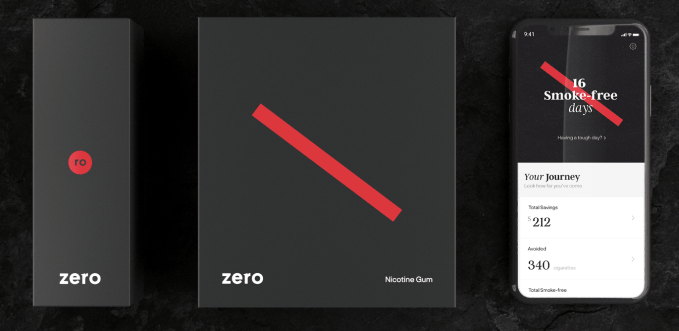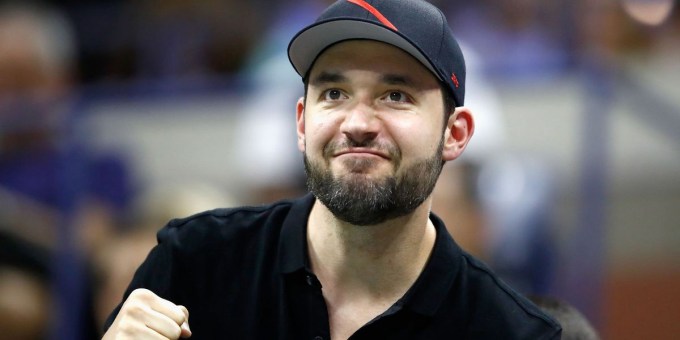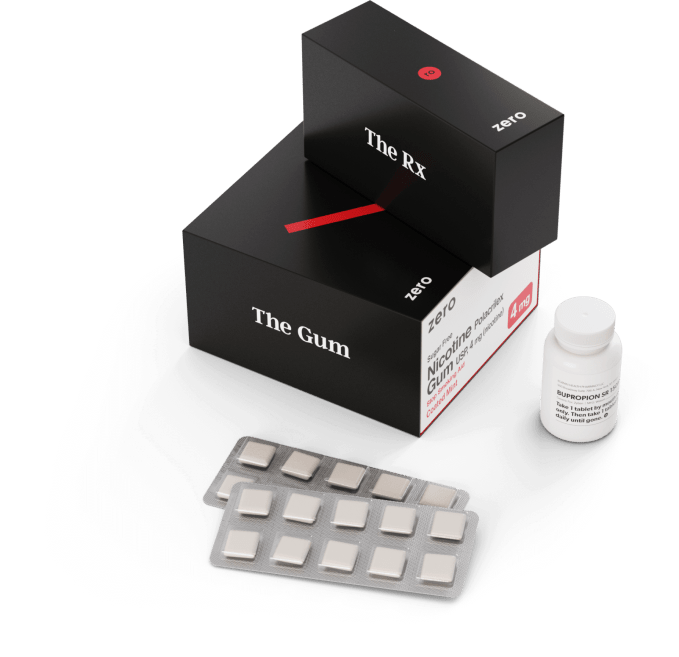Roman is a rocket ship, and I’m not talking about how it sells Viagra and Cialis. Less than a year after launching its cloud pharmacy for erectile dysfunction with $3 million in funding and a five-person team, Roman has grown to seventy team members and a revenue run-rate in the 10s of millions — up 720 percent since January. It’s sparked over a million patient-physician visits, phone calls, and text conversations through its telemedicine portal for getting diagnoses and prescriptions.
And now Roman is ready to expand beyond men, so it’s dropping the ‘Man.
Today, the newly renamed ‘Ro’ unveiled its next product, Zero, a $129 ‘quit smoking’ kit. It contains a month’s worth of prescription cessation medication bupropion and nicotine gum, plus an app for tracking progress and learning how to stay motivated through hunger, nausea, and cravings. Pre-orders open today.

“Erectile dysfunction medication is a knee brace. It helps you to walk again but the goal would be to not need a knee brace” says Ro co-founder Zachariah Reitano, who started the company because he lives with ED himself due to a heart medication side effect. “Some people will need ED medication but we’re hoping that a lot of people, through lifestyle changes or quitting smoking, won’t need us any more.”
To get the word out about Zero to women and men alike, as well as build a physician’s electronic medical record system, Ro has also raised a jaw dropping $88 million Series A round. It was led by FirstMark Capital and joined by SignalFire, Initialized Capital, General Catalyst, Slow Ventures, Sinai Ventures, Torch Capital, BoxGroup, and Tusk Ventures. Initialized and Reddit co-founder Alexis Ohanian and FirstMark managing director Rick Heitzmann will both join Ro’s board to steward this massive infusion of capital.

Roman board member Alexia Ohanian sporting a Roman Zero hat while cheering on his wife, tennis star Serena Williams
“The plan for the money is to continue to build out our own pharmacy” as well as “a lot of the backend infrastructure that we call ‘Ro’ that will allow us to launch these other products and verticals over the next two to three years, including women’s health products, Reitano tells me. Ohanian writes that “The only thing that exceeds Ro’s execution to date is their vision for the future of healthcare. Unlike other companies in the space, Ro is full-stack and is actually rebuilding the health care experience from the ground up, which means they are able to deliver unrivaled care for patients across the country.”

Ro’s Zero kit
Until recently, 80 percent of Viagra sold online was counterfeit. That not only made it awkward to buy medication for erectile dysfunction, but also dangerous. Yet that number is starting to drop thanks to the explosion in popularity of Roman, as well as fellow direct-to-consumer men’s health startup Hims. “Roman doesn’t lend itself to the typical Instagram unboxing experience, but we get a lot of one-to-one word of mouth” Reitano says with a chuckle. SEO has also been key to revenue growth, as it’s the first organic search result for ‘buy Viagra’.
“One of the thing that’s helped has been me sharing my story [he’s dealt with ED since he was 17], and this ‘check engine light’ concept” that views erections as indicators that a man’s body is in working order. Roman even built a somewhat-silly app called Morning Glory to help men track morning erections. Roman’s whole experience is designed to make patients comfortable with a fundamentally uncomfortable topic. “The fact that this stigma exists is why people don’t talk to their doctor or their partner” Reitano says.

Roman co-founder Zachariah Reitano
Now Ro wants to take the same clear-eyed approach to helping people quit smoking, starting by getting you to chat with its “telehealth assistant” to get paperwork sorted before you speak with a Ro doctor. The startup says that of the 37.5 million people in the US who smoke, 70 percent want to quit and 50 percent try to quit each year, but only 3 to 5 percent are smoke-free after six months. But with medication, nicotine replacement therapy like gum, tapering down smoking before stopping, and counseling, the quit rate drastically improves to 33 percent after six months.
You get all that from Zero’s kit for $129 per month, compared to $120 on Amazon for just the nicotine gum. Reitano admits that “the margin actually is not fantastic to start. Let’s say it’s slightly below what a typical commerce purchase would be.” But the idea is that if Ro and Zero can help someone quit smoking, patients will turn to it for more of their online pharmacy needs.
One barrier for Ro is that it currently doesn’t accept insurance for its $15 telemedicine appointments, Roman pills, or the Zero kit. Eventually it wants to accept FSA cards for tax-favored spending in hopes of reducing the cost for some patients, but otherwise Ro will require people to pay out-of-pocket, restricting it to wealthier segment of the population. Reitano admits that “In any space that’s incredibly competitive and highly regulated, there are things out of your control. In our control, there’s an incredible opportunity to make sure we take advantage of the infrastructure we have.”
Reitano concludes, “Honestly, I hope we can live up to what we want to build.”